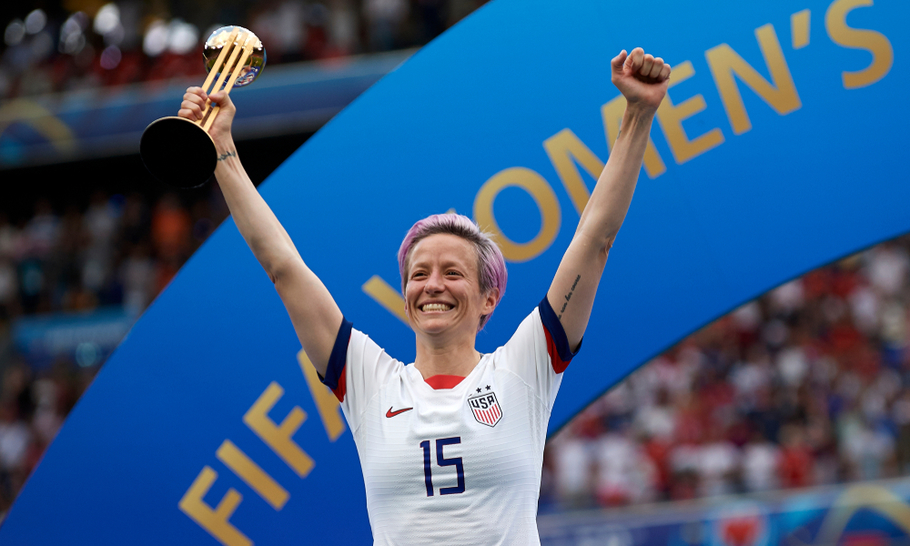Sport is not a vehicle for activism

Megan Rapinoe 2019. (Shutterstock)
There has been a real push in the past year or so for women’s football to go mainstream. That much is clear from the extensive coverage it has received from the BBC, especially during the World Cup, a contest that has rarely piqued the interest of the average football fan.
One of the accusations usually levelled against football fans is that they don’t take women’s football seriously. But, given what the game has become, one can hardly blame them — many involved don’t seem to take it seriously as a sport, either.
This week saw the Ballon D’Or, the award for the best footballers in the world, awarded in Paris. In the men’s division, Lionel Messi narrowly edged out Virgil van Dijk.
The women’s award went to the US international Megan Rapinoe. Rapinoe had ended last season with some hefty silverware — the women’s World Cup trophy itself — to show for her efforts. But not everyone was united in the choice of winner.
Rapinoe herself has admitted that she received the award as much for her activism as her football. She has been a vocal advocate for LGBT rights, and a strong critic of Donald Trump. She “took a knee” against alleged police heavy-handedness in the US, and has been an outspoken advocate of female players receiving the same pay as men.
Which is all well and good — except that the Ballon D’Or isn’t an activism trophy. It rewards sporting prowess.
In 2019, Rapinoe played in just five games for her club side Reign FC. She only started three of them, and didn’t score in any. Successful World Cup or not, it is inconceivable that a man, no matter how talented, would have been a contender for the Ballon D’Or if he’d had a comparably poor season. Rapinoe had an excellent World Cup and scored six goals, but then so did her teammate Alex Morgan. Also, Rapinoe had a helping hand — she was on penalty duty, which accounted for three of them.
Compare that with last year’s winner, Ada Hegerberg, who has played in far more games than Rapinoe, and has a goal-scoring rate better than one per match — higher even than Messi. England’s Lucy Bronze, and indeed Rapinoe’s compatriot Morgan all have more impressive stats over the past 12 months.
Meanwhile, in the men’s game, Raheem Sterling has made quite a name for himself at Manchester City, where he won an unprecedented four domestic trophies in 2019. He also scored a goal in almost every other game — high figures for a midfielder — and became a leading voice in the campaign against racism in world football. This multitalented, activist role model, who won trophies galore on the biggest stage, came 12th in the men’s Ballon D’Or. Activism is not a replacement for sporting prowess.
Rewarding Rapinoe for being outspoken reduces women’s football to little more than a vehicle for social justice. Have the right opinions, and you’ll get the gong, even if you barely play. If that’s what its participants want, then that’s fine — but they cannot then claim the right to be considered equal to the men’s game in any conventional sense.
It is true that many fans, especially men, don’t consider women’s and men’s football to be equal. Why would they? The men’s game is the elite standard in world sport, and the old joke about a team of schoolboys being able to outmuscle and outperform the best the women’s game has to offer has, sadly, been proven correct on multiple occasions — the most recent example involving this very World Cup-winning US women’s team.
That is not to say, though, that it has to stay that way. It is precisely because women’s football has been held back so long that it has so much untapped potential to build upon — so much space to grow. But it won’t do, if the figures that populate it talk politics at every avenue, and talent isn’t rewarded as the main driver of the game.




